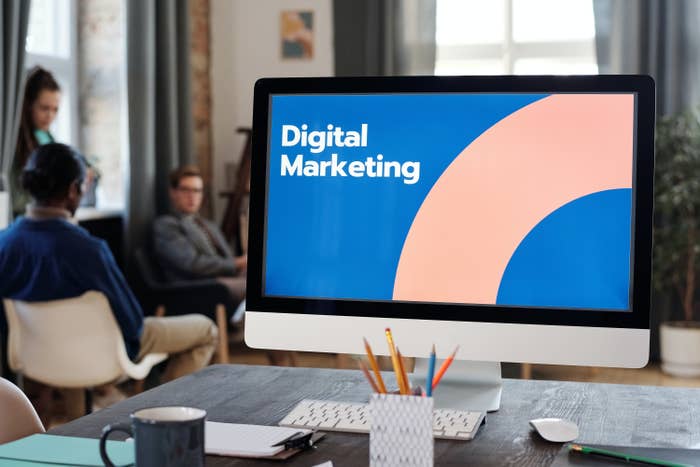
Why does Digital Marketing have significance?
● Identify target audience
Digital marketing allows you to identify and target a highly-specific audience, and send that audience personalized, high-converting marketing messages. Digital marketing enables you to conduct the research necessary to identify your buyer persona, and lets you refine your marketing strategy over time to ensure you're reaching prospects most likely to buy.
● Cost effective
Digital marketing enables you to track campaigns on a daily basis and decrease the amount of money you're spending on a certain channel if it isn't demonstrating high ROI. With digital marketing, you have complete control over where you choose to spend your money. Perhaps rather than paying for PPC campaigns, you choose to spend money on design software to create high-converting Instagram content. A digital marketing strategy allows you to continuously pivot, ensuring you're never wasting money on channels that don't perform well.
● Helps you outrank your market competition
Search engines don't care which brand is biggest — instead, search engines will prioritize content that resonates best with the target audience.
● Provides business insights
Digital marketing can give you a comprehensive, start-to-finish view of all the metrics that might matter to your company — including impressions, shares, views, clicks, and time on page. This is one of the biggest benefits of digital marketing.
● Generates website traffic
With digital marketing, you can see the exact number of people who have viewed your website's homepage. You can also see how many pages they visited, what device they were using, and where they came from. This helps you to prioritize which marketing channels to spend more or less time based on the number of people those channels are driving to your website.
How does Digital Marketing contribute to businesses?

● SEO (Search Engine Optimization)
Search Engine Optimization (SEO) serves as a vital tool in the field of Digital Marketing. It is a digital marketing strategy that helps your website rank higher on Google or other search engines and helps connect consumers with brands through optimized content. So, the website may come on top in the Search Engine Result Pages (SERPs). SEO targets different kinds of searches that include image search, video search, and news search engine.
▪ On-page SEO
On-page SEO includes those activities that happen on your website. It generates optimized content on your website to create public traffic and improve your rankings in the Search Engine Result Pages (SERPs).
▪ Off-page SEO
Off-page SEO strategies happen not on your website but outside of your website. This category involves building links through the content people want to come across, like, and share.
● Content marketing
Content Marketing uses content to create brand awareness, increase traffic, and generate leads. It attracts 3% more leads than PPC (Pay-Per-Click) marketing. Various channels and content marketing tools promote the content marketing strategy. There are many types of content marketing. Some of them mentioned below,
▪ Blogs
A popular and effective content marketing technique implemented to educate people about the industry expertise to get more organic traffic and convert visitors into leads.
▪ Brochures
It is another marketing technique to communicate with the customers about products, services, and packages regarding your business.
▪ Magazines
This digital marketing technique targets customers from all walks of life through creative ads displayed in magazines.
● Social media marketing
Social media advertising has become one of the fastest-growing trends in recent times. Social ads usually appear on social media platforms, such as Facebook, Linked In, and Twitter. Social media advertising is suitable for brands that have an active social media presence and highly targeted customers. This practice promotes your brand and your content on social media channels to increase brand awareness, drive traffic, and generate leads for your business.
● PPC (Pay-Per-Click) advertising
PPC (Pay-Per-Click) is an advertising strategy where advertisers pay a fee each time someone clicks on their ads. They are on various advertisement platforms such as the search engines, like Google, and social platforms such as Google ads, Facebook ads, and Twitter ads where the host pays a fee when the ad gets clicked. PPC (Pay-Per-Click) advertising aims to attract visitors to the website and turn them into customers. It can be a cost-effective way to drive traffic to your website if your advertising strategy is effective. It allows the advertisers to display ads relevant to the searcher's intent.
Our thoughts,
Studies stated that there are about 5.6 billion searches take place on Google every day. As for digital marketing, only 64% of businesses have a website, while 88% of small businesses invest in social media and 54% of businesses use email marketing to facilitate customer relationships. Other than this, 56% of businesses strengthen their content for website marketing. Moreover, as of 2020, 32% of businesses use video marketing to engage customers. These approximations are all set to impose a great emphasis on different areas of digital marketing that are most likely to go forth in the future.

